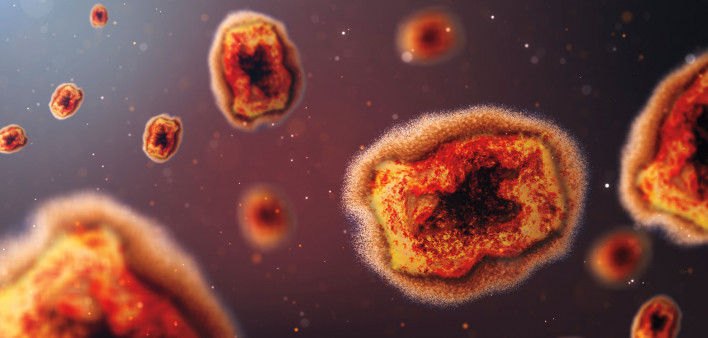People with repeat mpox (formerly known as monkeypox) infections and those who contract the virus despite vaccination appear less likely to develop severe illness.
The global mpox outbreak that started in May 2022 has declined dramatically since its peak late last summer, but sporadic clusters are still being reported. Studies to date have yielded varying estimates of mpox vaccine effectiveness, and a substantial proportion of people in recent case clusters were vaccinated.
The international SHARE-net Clinical Group analyzed 37 cases of mpox after past infection or vaccination, all involving gay or bisexual men. Seven were reinfected, 29 were infected after receiving two doses of the Jynneos vaccine and one was both vaccinated and reinfected. The eight men living with HIV were on antiretroviral treatment with an undetectable viral load and an adequate CD4 T-cell count. Studies have shown that HIV-positive people with advanced immune suppression are prone to severe mpox, but not those with well-controlled HIV.
Men with repeat or post-vaccination infections had fewer and less severe mpox sores that healed more quickly. The clinical presentation differed from initial infections reported in 2022, which were often characterized by severe, painful anal lesions or debilitating mouth or throat lesions. There were no deaths in the new cohort, and all but one were managed as outpatients. In contrast, around 10% of cases reported in 2022 required hospitalization.
“Natural immunity and vaccine-induced immunity are not fully protective against mpox infection. However, in this small series, both disease duration and severity appear to be reduced,” the study authors wrote.







Comments
Comments